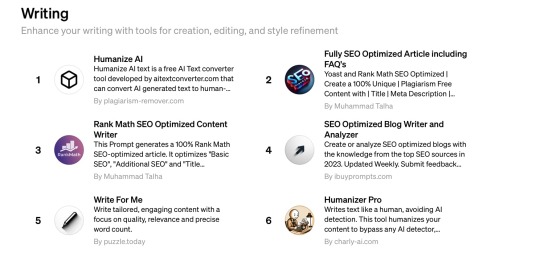Best digital marketing: GJ Bramer MIM bienvenue/welcome🍷
Don't wanna be here? Send us removal request.
Text
The Hypocrisy of Complaining About Pollution While Flying Everywhere
In an era where climate change headlines dominate the news and public concern about environmental degradation is at an all-time high, a glaring contradiction remains largely unaddressed: the widespread habit of flying, often unnecessarily, among people who claim to care deeply about pollution and sustainability.
Air travel is one of the most carbon-intensive activities an individual can engage in. A single long-haul flight can emit more CO₂ per passenger than many people in developing countries produce in a year. Yet, despite this well-known fact, flying remains routine for millions—whether for quick weekend getaways, business trips that could be Zoom calls, or frequent holidays abroad.

This behavior illustrates a broader issue in the fight against climate change: the gap between stated values and actual actions. It’s easy to denounce corporations or governments for environmental harm, but harder to examine our personal contributions. Flying has become a cultural norm, even a status symbol, and many people are reluctant to give it up—no matter the climate cost.
The solution isn’t to demonize every traveler but to foster honest dialogue about the environmental impact of our choices. Real progress requires not just awareness, but integrity—aligning our behaviors with the values we publicly espouse.
How willing are we to truly change our lifestyles for the planet we claim to want to save?
0 notes
Text
What makes content great?
Great content needs to hit three of the four E’s - educate, engage, entertain and empower - to truly resonate with your audience.
Uniqueness and originality are everything. Anyone can answer questions effectively now. You have to stand out. For people and the algorithm. Be memorable.

Understand your audience - Who are they? Where are they? How do they consume content?
Amplifying your content has never been more important. Boost your article early by sharing, amplifying and engaging in the industry you’re in. Build a profile.
more >> https://leadershipinseo.substack.com/p/how-to-write-great-content
0 notes
Text
Accessibility for SEO
As the new Web Content Accessibility Guidelines (WCAG) go live this month, a new light is being shined on website accessibility. But in honesty, this is something almost no SEOs think about!
Ensuring your website is accessible to everyone may not be a direct ranking factor. Still, if you’re driving traffic to a website and the users with disabilities can’t access and engage with the entire site, it’s going to impact your SEO efforts negatively.
Over 61 million people have disabilities in the U.S. alone. Therefore, a vast percentage of your target audience will likely benefit from improved website accessibility.
Plus, as more countries worldwide make website accessibility a legal requirement, not meeting government-issued accessibility guidelines could mean a lawsuit that might take down your online business.

As someone whose mother is registered as legally blind, I appreciate the difference website accessibility can make to the quality of someone’s day-to-day life.
In this article, we are going to look at the importance of website accessibility, how it can boost your SEO efforts, as well as what you can do to ensure your site meets the most up-to-date accessibility regulations.
more>>https://ahrefs.com/blog/accessibility-seo/
0 notes
Text
Sometimes LinkedIn is like a networking event where some people like to wear a mask and/or shake your hand and don't tell their names. I come across profiles without picture, no or no real name, no contact info, etc. So people come there, more or less under cover and I really can't see the fun in that. I have people visiting my profile and what I see is someone, from some company, from somewhere viewed my profile. Perhaps when you're a lawyer and don't want to be connected to your clients or something like that, but what's the point of behaving like that? For me it's a mystery but perhaps can someone explain?

0 notes
Text
The latest attempt to get people to use Bing and Edge instead of Google and Chrome.
Microsoft is pulling yet another trick to get people to use its Bing search engine. If you use Bing right now without signing into a Microsoft account and search for Google, you’ll get a page that looks an awful lot like... Google.
It’s a clear attempt from Microsoft to make Bing look like Google for this specific search query, and other searches just list the usual Bing search results without this special interface. The Google result includes a search bar, an image that looks a lot like a Google Doodle, and even some small text under the search bar just like Google does. Microsoft even automatically scrolls down the page slightly to mask its own Bing search bar that appears at the top of search results.
more >> https://www.theverge.com/2025/1/6/24337117/microsoft-bing-search-results-google-design-trick
0 notes
Text
Relevance yields value for customers and drives value for businesses.
Your customers can’t afford to make the wrong choice. In today’s competitive landscape, it’s more important than ever to connect with your most valuable prospects. Let’s dive in.
Consumers consider many brands; few make their short lists. Consumers who fill out a lead form or make a purchase consider 4.3 brands at the start of their journey, but only 1.8 by the end.
They prioritize relevance over personalization. Consumers place more importance on brand interactions that are relevant to their needs or past behaviors than on comparable interactions that are personalized with their name or personal details (33% versus 20%).
Relevance has three key components. The top three characteristics that consumers look for when determining if a product or service is relevant to them are quality (53%), desired benefits or features (47%), and value (47%).
Relevance drives results. U.S. advertisers who optimize their digital campaigns for high-value leads do so to increase conversions (53%) and ROI (47%).
0 notes
Text
Google will begin to show ads in AI Overviews
The AI-generated summaries it supplies for certain Google Search queries, and will add links to relevant web pages for some of those summaries as well. It’s also rolling out AI-organized search results pages in the U.S. this week.
The increasing prominence of AI in Google’s core search product is an effort to keep users from shifting to alternatives like OpenAI’s ChatGPT or Perplexity, which use AI to answer many of the questions traditionally thrown at Google. Perplexity said in May that its worldwide user base had grown to more than 85 million web visits — a drop in the bucket compared to Google, but impressive considering that Perplexity launched only two years ago.
Since its launch this spring, AI Overviews has been the subject of much controversy, going viral for its dubious statements and questionable advice (like adding glue to pizza). A recent report from SE Ranking, an SEO platform, found that AI Overviews cites websites that “aren’t entirely reliable or evidence-based,” including outdated studies and paid product listings.
The chief problem is that AI Overviews has a tough time discerning, occasionally, whether a source of information is fact or fiction, satire or serious. Over the past few months, Google has made changes to how AI Overviews works, including limiting answers related to current events and health topics. But the company doesn’t claim it’s perfect.
more>>https://techcrunch.com/2024/10/03/google-brings-ads-to-ai-overviews-and-rolls-out-ai-organized-pages/
0 notes
Text
It looks like the cookie won’t be crumbling after all.
Google is scrapping its tumultuous, years-long effort to eliminate third-party cookies on Chrome.
In an announcement made Monday, the search giant indicates that it plans to keep third-party cookies up and running for those who don’t disable them. However, to enhance user privacy while preserving advertising effectiveness, Google plans to roll out a new solution: a one-time prompt that enables users to set preferences that will apply across Google browsing experiences.
“We are proposing an updated approach that elevates user choice,” wrote Anthony Chavez, vice-president of Privacy Sandbox, in a blog post published today. “Instead of deprecating third-party cookies, we would introduce a new experience in Chrome that lets people make an informed choice that applies across their web browsing, and they’d be able to adjust that choice at any time.”
more>> https://www.thedrum.com/news/2024/07/22/shock-decision-google-abandons-third-party-cookie-deprecation-plans
0 notes
Text
Clicks and Engagement Impact SEO
For years Google denied using clicks on organic listings as a ranking signal. We now know otherwise. Recently revealed documents show Google indeed uses click-related signals in its algorithm

Here’s an overview of those documents with my takeaways on the search engine optimization impact.
more >> https://www.practicalecommerce.com/yes-clicks-and-engagement-impact-seo
0 notes
Text
Internal Link Audits
Why are Internal Links Important for SEO?
I can't stress enough how crucial internal links are for your website's SEO.
A good internal link structure improves users' experience on your website. Thanks to well-placed internal links, visitors delve deeper and deeper into your content, and they will (in general) stick around longer and bounce less. These user signals will help boost your site's standing with search engines.
This is especially true now that we know Google uses click data (as we have speculated for years) as part of their ranking algorithm.

Along with user experience benefits, an excellent internal link structure helps search engines find and index your pages, significantly boosting your site's visibility in the SERPs. Using internal links, you can quickly spread link equity across your website.
more>>https://seotesting.com/blog/internal-link-audits/
2 notes
·
View notes
Text
Lead Generation Landing Page Examples
Landing Pages vs. Web Pages: What’s the Difference?
The public-facing pages on your website are largely informational. They’re designed to keep people on the site as long as possible, and they do that with smart internal links and valuable content that answers questions and educates visitors.
Web pages are great for attracting traffic and positioning your products or services. They aren’t that effective at converting visitors. For that you need lead generating landing pages.
Landing pages have only two jobs.
To keep the promise made in the ad, email, social post, or link that preceded the page.
To ask your visitor to do something.
Landing pages work because they don’t encourage browsing or exploring. They’re designed to promote one specific offer and drive visitors to complete one designated course of action.
One of the most common uses for landing pages is to generate leads.
read more>>
0 notes
Text
SEARCH ENGINES NEED TO FIND YOUR WEBSITE
As a business, you no doubt want to find a way to increase business. One of the impulses is to spend money on advertising or other aspects of digital marketing that work faster. The problem with this mindset is, spending money on advertising and other “flashier” parts of digital marketing doesn’t yield results.
SEO, on the other hand, does. The issue is that it takes a lot of patients, and it takes a while to work. Here’s a look at why all businesses need SEO.

SEARCH ENGINES NEED TO FIND YOUR WEBSITE
Whether we think this is valid or not, people perform internet searches when looking for content. It’s ingrained in our culture. This is the number one reasons why all business need SEO. If you don’t pay attention to SEO, you will not be there when someone in your audience searches for information related to your business.
If your website is not optimized for search engines, it will be harder for them to find and index your content. This means that you may miss out on potential customers and opportunities. By implementing a strong SEO strategy, you can ensure that your website is easily discoverable, and that it ranks high in search results for relevant queries.\
more>> https://www.brickmarketing.com/blog/businesses-seo
2 notes
·
View notes
Text
ChatGPT Prompts for Customer Personas
Generative AI platforms such as ChatGPT have access to much data to respond to our needs. Marketers can use that info for many purposes, including understanding their audiences and creating buyer personas.
Here are three examples. >>> https://www.practicalecommerce.com/chatgpt-prompts-for-customer-personas
1 note
·
View note
Text
Discover humanizer models and delve into their impact on AI content detection.
With the launch of ChatGPT’s GPT Store, users can now access GPT models that are fine-tuned for specific types of assistance. Ranging from creative writing to legal advice, technical coding and even medical information, these specialized GPTs go well beyond the ordinary ChatGPT model.
In the two months since the announcement that would allow ChatGPT users to create custom versions of the program, numerous builders from a variety of backgrounds and specialties have shared their creations with others.

Not surprisingly, some of the most popular GPTs are “humanizers”. Humanizers are designed to subvert the robotic “AI-sounding” GPT writing and replace it with content that sounds more human.
But are these “human-style” models really able to create undetectable AI content?
We put them to the test.
read more >>https://originality.ai/blog/do-humanize-ai-gpts-work
0 notes
Text
youtube
This is a 1 hour general-audience introduction to Large Language Models: the core technical component behind systems like ChatGPT, Claude, and Bard. What they are, where they are headed, comparisons and analogies to present-day operating systems, and some of the security-related challenges of this new computing paradigm. As of November 2023 (this field moves fast!).
0 notes

